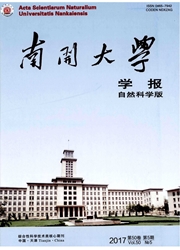

 中文摘要:
中文摘要:
从新疆油田石油污染土壤中分离到一株烃降解细菌HL-6,经生理生化实验和分子生物学方法初步鉴定为红球菌(Rhodococcussp.).研究表明,利用乙醇无机盐培养基培养液体种子是适宜的,菌体浓度可达108CFU/mL.在以柴油为唯一碳源的无机盐培养基中,25℃振荡培养3d,烃降解率达到78.5%.该菌降解烷烃的范围很广泛,对C11~C36均有不同程度的降解.将乙醇制备的种子液与沸石按照2:1的比例制备成固体菌剂加入以柴油为唯一碳源的无机盐培养基中进行25℃振荡培养7d,同时与以相同菌浓液体菌剂接种的降解情况进行对照,最终降解率液体菌剂达到82.8%,固体菌剂达到74.6%.固体菌剂和液体菌剂可分别用于海洋滩涂和土壤石油污染的生物修复研究.
 英文摘要:
英文摘要:
A hydrocarbons-degrading strain HL-6 was isolated from oil contaminated soil of Xinjiang Oil Field and identified as Rhodococcus sp. , which could use diesel oil as sole carbon source. The seed culture ultilizing ethanol could reach 108 CFU/mL. Inoculated to minimal medium with diesel oil as sole carbon source after 3 days of culture at the temperature of 25℃, the rate of degradation was 78.5%. The strain could degrade a large range of n-alkane from Cll to C36. Solid bacterial reagent obtained by blending cultures and zeolite in the ratio of 2 : 1. The degradation of solid bacterial reagent and liquid bacterial reagent inoculated with diesel oil as sole carbon source after 7 days were compared. The final rate of degradation of liquid bacterial reagent reached 82.8%, solid bacterial reagent reached 74. 6%. So solid and liquid microbial agent can be respectively used for marine shoal and soil petroleum pollution bioreme- diation research.
 同期刊论文项目
同期刊论文项目
 同项目期刊论文
同项目期刊论文
 期刊信息
期刊信息
